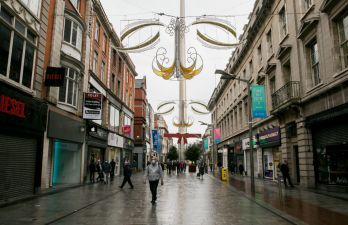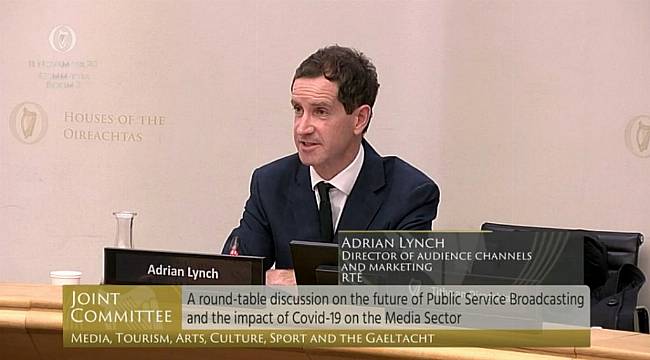The “broken” TV licence system is costing about €50 million in lost revenue each year, RTÉ’s television controller has said.
Adrian Lynch said there were more than a quarter of a million people who evade the licence fee and a further 140,000 households without a TV.
The director of audiences, channels and marketing at RTÉ added that the broadcaster was not looking to increase the licence fee, but instead wanting the licensing system overhauled.
We’re not looking to higher the licence fee, we’re just looking to have it reformed
“We’re not looking to higher the licence fee, we’re just looking to have it reformed and fixed,” he said.
He made the comments at the joint Oireachtas Committee on Media, Tourism, Arts, Sport, Culture and the Gaeltacht, which met Wednesday to discuss public service broadcasting and the impact of Covid-19 on the media sector.
Cost-cutting
Mr Lynch said Covid-19 had caused an immediate “sharp drop” in licence fee and avertising revenue, while the outlook for 2021 remained “uncertain" in light of Brexit.
He told the committee that RTÉ would deliver its planned €60 million cost-cutting plans over three years as proposed by the director general last year, involving cost management, changes in the schedule and big sporting events being deferred to next year.
He said the broadcaster had revised the number of redundancies it was seeking from staff downwards from 200 to about 140 due to Covid-19.
“Part of it is because we have been delivering such significant output and we’ve changed the way we are working significantly. There’s so much remote working and we really see that we need to keep these essential services on air," he said.
Mr Lynch told the committee RTÉ showed “clear public purpose” during this crisis and had also been a source of “companionship, diversion and connection for millions of people”.
If we don’t see immediate action there will be no future for many media workers
NUJ Irish secretary Seamus Dooley told the committee the union was “gravely concerned” for the future of public service broadcasting in Ireland.
Mr Dooley said the Media Minister Catherine Martin had provided “precious little clarity” on how the department proposed to assist in addressing the financial situation in RTÉ.
He said the union welcomed that the Future of Media Commission had commenced its work but he warned: “If we don’t see immediate action there will be no future for many media workers.”

“While initiatives were taken in respect of tourism, hospitality and the arts, no immediate, substantial measures were taken to assist the media apart from the welcome initiative in respect of independent commercial radio,” he said of the Covid-19 pandemic.
“While employment in the print, broadcasting and digital sector is not comparable to tourism, the implications for democracy, of a diminished media sector should be of concern to this committee.”
John Purcell, chairman of the Independent Broadcasters of Ireland, called for an emergency taskforce to be established during the pandemic to assist media workers.







